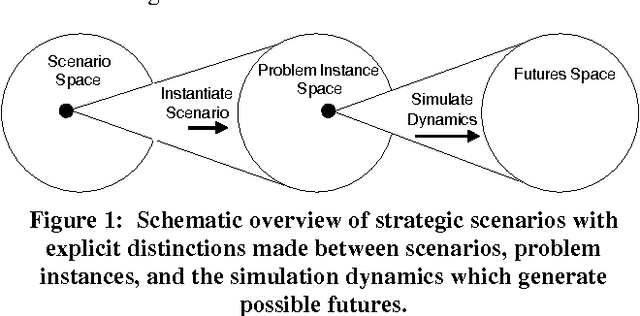Ruhul Sarker
Computational Scenario-based Capability Planning
Jul 03, 2009Abstract:Scenarios are pen-pictures of plausible futures, used for strategic planning. The aim of this investigation is to expand the horizon of scenario-based planning through computational models that are able to aid the analyst in the planning process. The investigation builds upon the advances of Information and Communication Technology (ICT) to create a novel, flexible and customizable computational capability-based planning methodology that is practical and theoretically sound. We will show how evolutionary computation, in particular evolutionary multi-objective optimization, can play a central role - both as an optimizer and as a source for innovation.
Strategic Positioning in Tactical Scenario Planning
Jul 02, 2009



Abstract:Capability planning problems are pervasive throughout many areas of human interest with prominent examples found in defense and security. Planning provides a unique context for optimization that has not been explored in great detail and involves a number of interesting challenges which are distinct from traditional optimization research. Planning problems demand solutions that can satisfy a number of competing objectives on multiple scales related to robustness, adaptiveness, risk, etc. The scenario method is a key approach for planning. Scenarios can be defined for long-term as well as short-term plans. This paper introduces computational scenario-based planning problems and proposes ways to accommodate strategic positioning within the tactical planning domain. We demonstrate the methodology in a resource planning problem that is solved with a multi-objective evolutionary algorithm. Our discussion and results highlight the fact that scenario-based planning is naturally framed within a multi-objective setting. However, the conflicting objectives occur on different system levels rather than within a single system alone. This paper also contends that planning problems are of vital interest in many human endeavors and that Evolutionary Computation may be well positioned for this problem domain.
 Add to Chrome
Add to Chrome Add to Firefox
Add to Firefox Add to Edge
Add to Edge